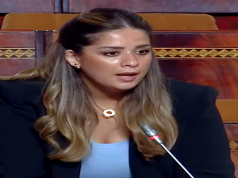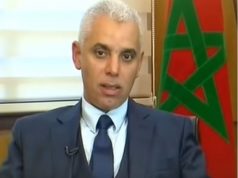The novel coronavirus is one of the most dangerous viruses that beset the world. Since it unfolded in China, it has spread over many countries around the world, causing the death of thousands of people and bringing the world economy to a stillstand. COVID-19 has been classified by the World Health Organization as a universal pandemic, because of its exceptionally fast transmission mode.
Every country implemented various preventive measures to contain the novel form of the coronavirus, COVID-19. The Moroccan government is no different in this regard. Under such exceptional circumstances, it took an array of health and social isolation measures, ones suggested by the World Health Organization. During this period, strict measures prohibit gathering in public places, among which religious shrines are of no exception. In the context of the observed quarantine (al-Hajr al-Sihi) in Morocco, this article aims at analyzing this political decision in light of Islamic teachings. This article will also evaluate the above-mentioned decision through the lenses of Islamic history, hearkening back to memory how Muslims in the past resolved similar matters during times of global pandemic.
There are numerous verses, prophetic sayings, and historical stories that emphasize on preventive health measures like cleaning hands, eating healthy and Halal food, and staying away from dirty substances as this approach goes hand in hand with one of the fundamental objectives of Shari’a, the protection of the human body.
Preventive Measures Based on Qur’anic Verses
The Qur’an is the first source that Muslim scholars rely on to derive rules of jurisprudence when it comes to solving any problem that a Muslim may face in his/her daily life. So, what does the Qur’an say about pandemics like the coronavirus? Following an Islamic conductive approach, when there is a complicated issue like that of this novel virus, it is a must for Muslim scholars to infer from the Qur’an verses the rules which are applicable to a similar juncture.
It is well-known that the Qur’an does not deal with specific situations, it rather gives general rules which can be applied to peculiar situations, especially issues related to politics, social, health, and finance since such worldly matters are similar in space and time. One of these significant rules is the protection of human life, as Allah considers the life of a person in the highest regard, with one life equalling the life of all humankind in the creator’s eye. This is clearly stated in the Holy Qur’an when Allah Almighty says: “Because of that, We ordained for the Children of Israel that if anyone killed a person, not in retaliation of murder, or (and) to spread mischief in the land – it would be as if he killed all mankind, and if anyone saved a life, it would be as if he saved the life of all mankind.” This should be considered a golden rule in the context of avoiding the spread of pandemics. Similarly, the Quran says that it is totally forbidden to be the cause of death, though indirectly and unwillingly, of any being, because Allah is Merciful, meaning it is a contradiction to believe in Him while being harmful to His creation. This rule is reported in the Holy Qur’an: “And do not kill yourselves (nor kill one another), Surely, Allah is Most Merciful to you.” Based on such Islamic teachings, inferred from the above-mentioned verses, it is a must for Muslims to stay home and avoid going to public places during quarantine unless there is a compulsory reason, and the privilege of going out should be granted by the local authority as its role is to control and organize the actions and behaviors of citizens.
Prophetic Sayings and Caliphs’ Attitudes Towards Contagious Disease
Observing the state of health emergency measures is the most effective way for the Moroccan society to avoid suffering the bad outcomes of the epidemic. As you know, the Moroccan government took an early initiative to safeguard its citizens’ health from this disaster through issuing numerous health measures such as stopping them from going to mosques, walking in streets, spending time in coffeehouses and markets. The folding of COVID-19 requires all Moroccan citizens to observe the right measures given such challenging circumstances. It is most likely that the decreed health measures issued by the Moroccan government were congruent with the Prophet’s guideline. The Prophet PBUH, as narrated by Al Boukhari, said: “If you hear of an outbreak of plague in a land, do not enter it; but if the plague breaks out in a place while you are in it, do not leave that place”.
In the footsteps of this authentic hadith, the caliph Umar ibn al-Khattab (644) understood in his time that the plague of Amwas, a bubonic virus which afflicted Syria in 638–639, was a dangerous contagious disease and took action accordingly. After he visited Syria, he quarantined himself and his traveling army when he decided to go back to Medina. Initially, and before heading to Syria, he summoned Abu ‘Ubayda (commander of the Muslim armies and companion of the Prophet), with the intention to ask him to not enter Syria, as the plague was raging there, for fear they would infect their families in Medina when they return back home. After refusing to come to Medina, Umar headed to meet to Abu Ubayda, after consulting various tribes regarding the legitimacy of his legal opinion, corroborated by the leaders of the tribes. Upon meeting Abu Ubayda, Umar reiterated the legal opinion that they should return to Medina, but Abu Ubayda challenged him yet again, arguing that stopping the war mission was tantamount to running away from God. Umar replied that he was “merely running from the will of God to the will of God.”
Another Caliph’s attitude towards the aforementioned disease was reported by Ibn Katir in his book when he said that Abu ‘Ubayda ibn al-Jarrah, the governor of the Levant region, passed away by the plague. The succeeding governor Mu’ad ibn Jabal also died of the same plague. However, when Amr Ibn Al’ass was appointed as a successor to Mu’ad, he addressed the people saying “O people, the plague is like a burning fire, and you are its fuel. So, disperse and fortify yourself in the mountains until the fire does not find firewood and get extinguished. As people obeyed him and acted positively to his instructions, they all escaped the plague and God lifted the scourge.”
Accordingly, one would say that two approaches were adopted for the case of the plague of Amwas, which raises the question of what is the right response to similar cases? One answer to this complex dilemma is that the two approaches are valid. Based on both of them, one may conclude the principle that one should neither enter no flee a plague-ridden area. To participate in safeguarding Morocco’s public health system, Moroccan citizens are recommended to adopt the approach of ‘Umar ibn al-Khattab and ‘Amr ibn al-‘Ass, when they refused to enter into a plague-stricken area in order to safeguard the lives of people.
Religiously speaking, Moroccan citizens are extremely advised to fight COVID-19 by avoiding coming close to any person so that the disease is not transmitted from one to another. This decision has been taken by the Moroccan government when the chief of the government ordered to shut down all public places, including mosques. To make it easy for people to accept such a hard decision, al-Majlis al-‘Ailmi al-‘Ala (the Highest Scientific Council of Fatwa) issued a fatwa (religious opinion) based on Qur’anic, authentic hadiths, and the fundamental principle of Islamic shari’a that prohibits Muslims to be, though indirectly and unwillingly, the cause of death of other people. Accordingly, it seems that the most effective preventive measure to safeguard people’s lives is to observe quarantine. It is a must for Moroccans to stay at home during this period. In their fight against COVID-19, people should rely on both medical instructions, which are podcasted on television and religious inspiration, which was issued as a fatwa by Morocco’s High Islamic Council of Fatwa, composed of people like me, religious scholars.







